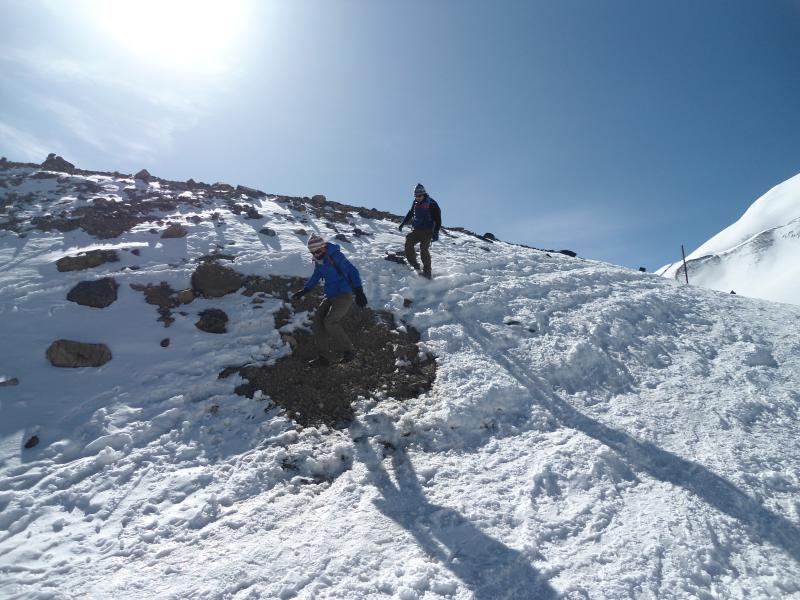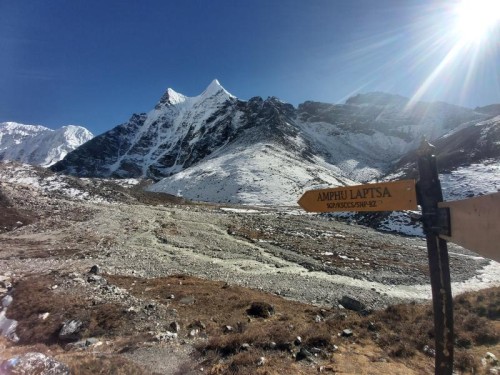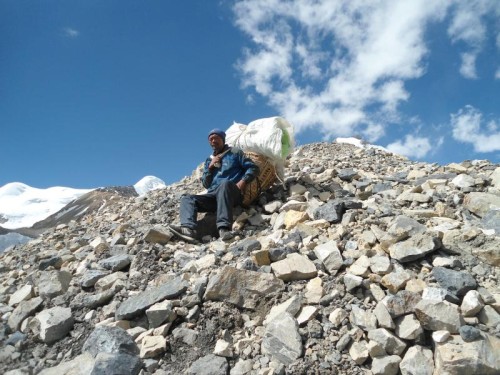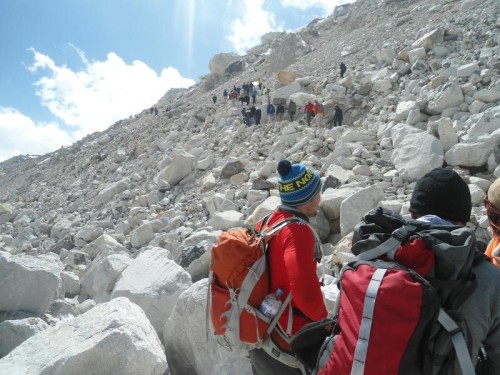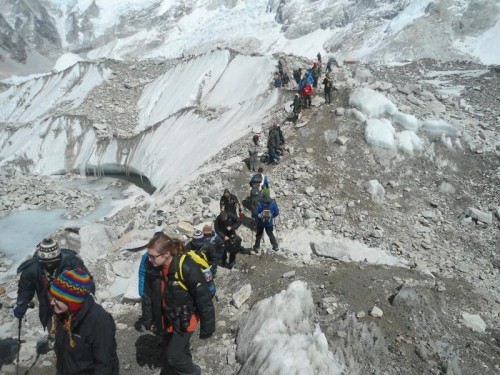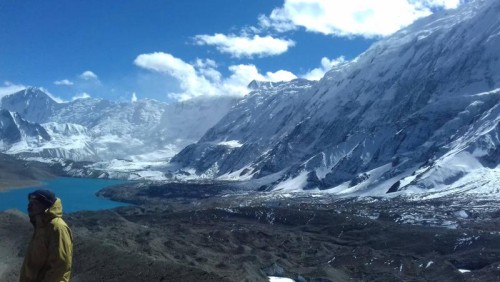High Passes Trek in Nepal
High Passes Treks in Nepal refers to trekking routes that traverse high mountain passes in the Himalayan region of Nepal. These treks are famous for their challenging terrains, breathtaking landscapes, and the opportunity to experience the magnificent Himalayas up close.
The High Passes are the high points or gaps between the mountainous paths that cross from one side of a mountain range to another valley. These points are normally at higher altitudes compared to the surrounding areas and are often characterized by steep slopes and challenging terrain.
High Passes Trekking are suitable for those people who admire demanding adventures hiking in the high altitude landscape of Nepal. It offers hiking at high altitudes, walking in Himalayan glaciers, and crossing Ice passes along the high mountains. Trekkers need to be physically fit, mentally healthy and have previous trekking experience with strong determination.
Nepal is a selected destination for high passes trekking since it offers a fantastic adventurous walk on high altitude terrains, showing about the Himalayan indigenous culture, observing dramatic and heart-touching valley views of hills as well as chance to explore hidden valleys with different Mountain views.
There are many high passes trekking destinations in Nepal which require high altitude basic climbing skill and carry all essential equipment such as tents, food, utensil, gas and all proper trekking equipment to complete the trip. That is why fewer travelers do these treks due to the routes being challenging.
All the passes of high passes are over 5,000 meters high, consisting of rocky, icy and rough trails on both sides to the top. These are some popular high passes routes, Everest Three High Passes Trek, Sherpani-col pass Trek, Amphu Laptsa pass Trek, Tahsi Laptsa Pass Trek, Tilicho Mesokanto-La pass Trek, Saribung Pass Trek, and many more.
Everest Three High Passes Trek is one of the famous trekking destinations among those due to its fully teahouse accommodations and informative route along the trail. This trek is fit for everyone and offers the high altitude trekking experience with strong determinations.
High Pass Adventure treks are offered to all trekkers for high passes treks in Nepal to enhance the thrilling experience of adventure. We have professional guides, cooks, and climbing guides to successfully complete these high passes treks. Our commitment is that our clients make happy and memorable holidays.
Highlights of High Passes Trek in Nepal
- Capture the Spectacular Mountain Views
- Excitement journey on Challenging Terrain:
- Experience the culture, traditions, and hospitality of people living in high-altitude regions
- Getting the significant accomplishment with pride
- Chance to observe the unique Flora and Fauna
- Endless opportunities for photography of dramatic nature
- Experience the Camping under twinkling Skies
- Chance to learn about own resilience, determination, and adaptability
Difficulties of High Passes Treks
Trekking in the high passes of Nepal is a thrilling and rewarding adventure, but it also comes with its share of difficulties and challenges. Here are some reasons of difficulties you may encounter during the high passes treks in Nepal:
High Altitude and Altitude-Related Health Risks:
One of the most significant challenges of high pass treks is the high altitude. Many of the High Pass trekking routes in Nepal, such as the Everest Three High Passes Trek and the Saribung Pass Trek, take you above 5,000 meters (16,400 feet) in elevation. Altitude sickness can be a real anxiety, and it's essential to acclimatize properly to minimize the risk. Symptoms of altitude sickness can range from mild to severe and include headaches, nausea, tiredness, dehydration, and difficulty breathing.
Weather conditions:
The weather in the high passes trek of Nepal might be extreme and changeable. Even during the trekking seasons, you must have encountered cold temperatures, snow, and strong winds. These conditions will make the trek more challenging and increase the risk of hypothermia and frostbite.
Remote and rocky Terrain:
High passes treks often take you through remote and rocky terrain, far from medical facilities and people settlements. The hiking trails will be steep, rocky, and challenging to follow the right route, making trekking physically demanding.
Limited Accommodations and tent Camp:
While there are teahouses and lodges along some trekking routes, accommodations at higher altitudes will be basic and limited in terms of facilities. You must sleep in the tent for some of the High Pass Trek, such as Saribung Pass, Sherpani Col Pass and more, making sleeping challenging.
Long Hours of Walking:
High passes treks in Nepal often involve long hours of walking and hiking each day, sometimes up to 6-9 hours or more. The terrain will be demanding, requiring a good level of physical fitness and strong determination.
Limited Food Choices:
In remote areas, the food options will be limited and basic. You'll typically find a menu with a few choices, and the quality and variety of food may not meet everyone's expectations. You will have Nepali dishes during the tent camp.
Despite these difficulties, high passes in Nepal offer incredible landscapes, cultural experiences, and a sense of achievement. Proper preparation, including physical training, acclimatization, and appropriate gear, will help with these challenges and make your trek more enjoyable and safe.


